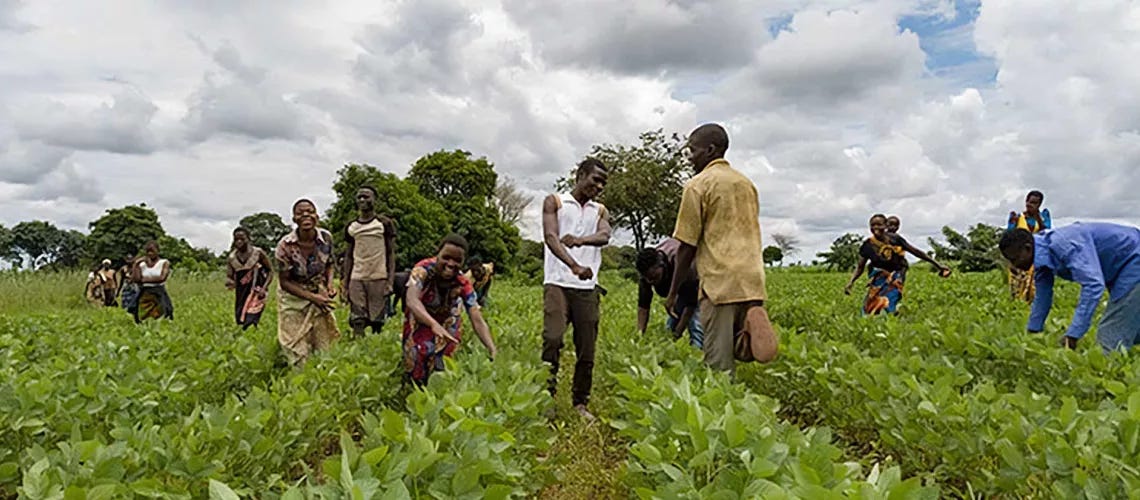CisaNet Expresses Concern Over Delay in Rollout of Affordable Inputs Programme in Malawi
CisaNet has also expressed concerns about the recent announcement by the government to remove one million beneficiaries from the AIP list.
Lilongwe, Malawi- The Civil Society Network on Agriculture (CisaNet) has voiced its deep concern regarding the significant delays in the rollout of the Affordable Inputs Programme (AIP) by the Malawi Government, writes Tionge Hara.
CisaNet, an organisation dedicated to advocating for agriculture policy and the rights of smallholder farmers in Malawi, has highlighted the contradiction between the delay and the government's commitment to supporting poor farmers and ensuring food security in the country.
One of the major concerns raised by CisaNet is the delay in determining the price of fertiliser under the AIP. With only one-and-a-half months left before the rainy season, the government's failure to provide this crucial information has left farmers uncertain and unable to plan effectively for the planting season.
This delay threatens to disrupt the planting season, potentially leading to lower yields and increased food insecurity.
CisaNet has also expressed concerns about the recent announcement by the government to remove one million beneficiaries from the AIP list.
While acknowledging the importance of periodically reviewing and updating beneficiary lists, CisaNet emphasizes the need for transparency and clear criteria in this process. Releasing the list of beneficiaries in a timely manner is crucial to allow those who have been left out to make alternative plans and avoid severe consequences for vulnerable households.
The organization has also noted that the AIP has not been accepting new entrants into the system, which prevents others from accessing farm inputs for the coming growing season.
CisaNet emphasises the importance of having an exit strategy for beneficiaries who have gradually benefited from the program, allowing others to grow in their respective socio-economic development.
Furthermore, CisaNet has called for transparency and accountability in the utilization of donated fertilisers. Malawi has received generous donations of 40,000 tonnes of fertiliser from Egypt and Russia, but it remains unclear how these donations will be integrated into the AIP.
CisaNet urges the government to outline a clear plan for the distribution and allocation of these donated fertilizers to ensure they reach smallholder farmers in a fair and equitable manner.
Reflecting on the past challenges in implementing the AIP, CisaNet emphasizes the need for the government to apply lessons learned to avoid the recurrence of such issues.
Promptly addressing outstanding refunds to farmers who were asked to pay in advance for inputs is crucial to restoring public trust and confidence in the program.
Transparency and accountability are key pillars of success for the AIP, and CisaNet has called on the government to provide regular updates on the progress of the program, including the distribution of inputs and the impact on farmers' yields.
Transparency fosters trust and allows stakeholders to monitor the program's effectiveness.
CisaNet firmly believes that the AIP is not only a lifeline for Malawian farmers but also a cornerstone of the country's economy.
The majority of smallholder farmers are rural farmers whose hopes for a successful harvest depend on receiving subsidised fertiliser through the AIP.
For them, this program is not a luxury but a fundamental necessity upon which their lives depend.
Consequently, how the government handles the AIP has far-reaching implications for the state of the entire economy.
The success of the AIP is not just about improving agricultural productivity; it is about reducing poverty, enhancing food security, and stimulating economic growth.
Malawi has the potential to be self-sufficient in food production, but it requires a robust and well-executed AIP to realise this vision. A clear and sincere political will remains key in this regard.
In light of these concerns, CisaNet has appealed to the Malawian Government to demonstrate seriousness and commitment to the implementation of the AIP.
It is imperative for the country to move towards self-sufficiency and food security, and the success of the AIP is pivotal in achieving this goal.
It is high time the government got serious about matters that life itself hinges on.
CisaNet says it remains committed to working collaboratively with the government to address these challenges and ensure that the AIP is effectively implemented for the benefit of Malawi's farmers and the nation as a whole.
The organisation believes that by working together, they can overcome the current challenges and create a brighter future for Malawi's agricultural sector and economy.



